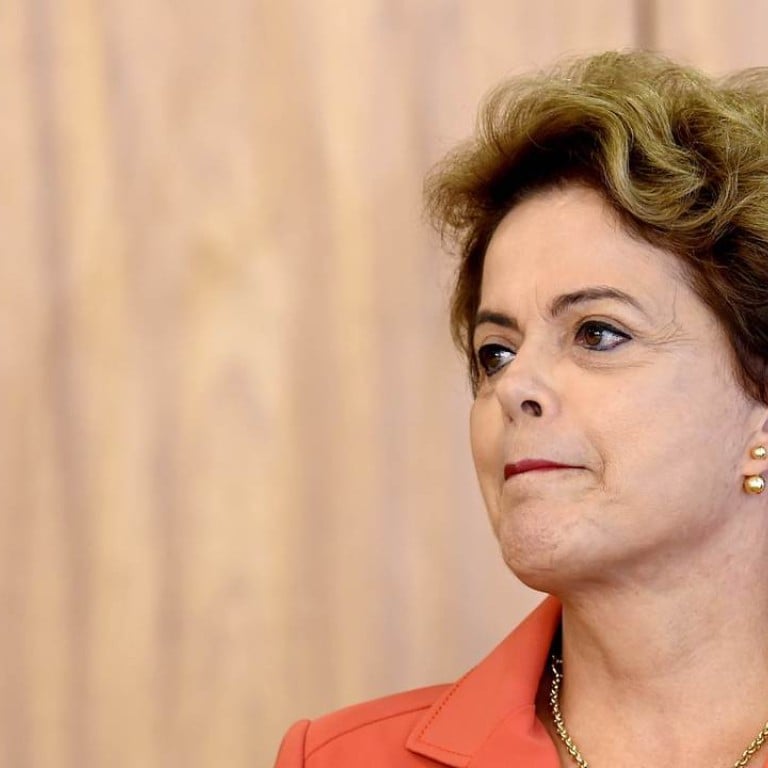
Brazil a cautionary tale for emerging market investors
There is an old joke that Brazil is the country of the future - and always will be.
Unfortunately this is no longer a joke.
On Monday, the Organisation for Economic Cooperation and Development (OECD) revised down its forecast for Brazil’s economy, predicting an even deeper contraction of 3.1 per cent this year followed by a shallower one of 1.2 per cent next year.
In an in-depth survey of Brazil published last week, the OECD says the country “is at a critical moment, as the fiscal situation is challenging, inflation is high and previous tail winds from high commodity prices are fading.”
This is putting it mildly.
Brazil’s economy and financial markets have had the rug pulled out from under them.
As recently as two years ago, Brazil was still growing at an annual rate of nearly 3 per cent - nowhere near the 5-6 per cent rates in 2007/08 but still a respectable clip - while its inflation rate was under 6 per cent and its primary fiscal surplus close to 2 per cent of GDP. Just as importantly, in early 2013, the yield on Brazil’s local 10-year bonds stood at just above 9 per cent.
Now, inflation is veering towards 10 per cent (more than double the central bank’s target) the primary fiscal surplus has swung into a deficit and the yield on Brazil’s 10-year domestic debt stands at a punitive 15.6 per cent - by far the highest benchmark local bond yields among the leading emerging markets (EMs).
As if this were not bad enough, Brazil is knee-deep in a debilitating political crisis stemming mainly from a high-profile corruption scandal at Petrobras, the country’s state-run oil company, which has led to calls for Brazil’s president, Dilma Rousseff (who chaired the company’s board at the time the kickback scheme was taking place but has not been accused of any wrongdoing), to be impeached. This has not only severely undermined her government’s authority, it has dealt a major blow to the prospects for much-needed fiscal and structural reforms.
In the space of a couple of years or so, Brazil’s greatest achievement over the past two decades - political and economic stability - has been squandered because of deep-rooted problems in governance which were masked during the China-driven commodities boom.
The ‘”old Brazil” - a country where the state is notoriously inefficient, bloated and corrupt and in which growth has been crimped by low productivity, poor infrastructure and what the OECD calls the “Brazil cost”: onerous taxes and regulations - was eclipsed by the commodities supercycle and foreign investors’ enthusiasm about the financial stabilisation and subsequent emergence of Latin America’s largest economy.
Repeated failures to address the country’s long standing problems when growth was relatively brisk - Rousseff disappointed investors bitterly during her first term as president by pursuing populist economic policies, including artificial cuts in interest rates, measures to boost consumption and price controls - have come back to haunt Brazil as the economy sinks deeper into recession.
For EM investors, Brazil’s political and economic crisis is a sobering reminder of the importance of spotting underlying weaknesses and vulnerabilities in developing economies that only become fully apparent when, to paraphrase Warren Buffet, it is clear who was swimming naked when the tide went out.
Brazil is ticking all the wrong boxes right now.
The real, Brazil’s currency, which has already lost a whopping 43 per cent against the dollar this year, is particularly vulnerable to an externally driven deterioration in sentiment towards EMs, stemming from concerns about China’s economy and/or the anticipated rise in US interest rates; Brazil has become one of the most politically unstable countries in the world; the economy is in dire straits; and the country’s credit rating - already reduced to “junk “ - risks being downgraded further.
Still, there are some redeeming aspects to Brazil’s woes.
Some investors see opportunities in an equity market that is down 43 per cent in dollar terms over the past year - and is now cheap even by Latin American standards.
More importantly, the Petrobras scandal has underscored the resilience and maturity of Brazil’s institutions. The country’s prosecutors and federal police have taken an extremely tough stance since the scandal broke, going so far as to investigate Brazil’s popular former president, Luiz Inacio Lula da Silva, and formally charging the heads of some of the country’s largest business groups with money laundering and corruption.
If the fallout from the scandal helps clean up Brazilian politics and business, it could yet be a price worth paying.
Nicholas Spiro is managing director of Spiro Sovereign Strategy

